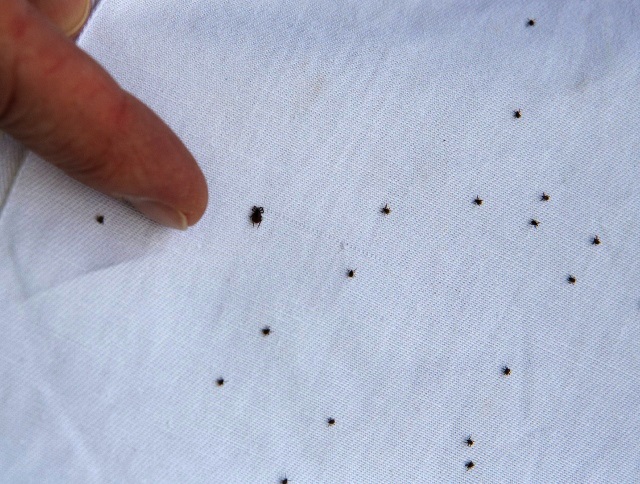We’re joining TV presenter and naturalist Chris Packham and the University of Bristol’s Big Tick Project this summer to look at rising tick numbers and the risk to our dogs and ourselves from tick-borne diseases such as Lyme Disease.
 As one of the chosen vet practices across the UK taking part, we will be carrying out tick checks on dogs coming into the surgery and sending any ticks found to the University of Bristol for analysis. Anyone whose dog takes part in this ground-breaking research will receive a Big Tick Project certificate and help progress veterinary and human medicine.
As one of the chosen vet practices across the UK taking part, we will be carrying out tick checks on dogs coming into the surgery and sending any ticks found to the University of Bristol for analysis. Anyone whose dog takes part in this ground-breaking research will receive a Big Tick Project certificate and help progress veterinary and human medicine.
Many of us have heard of cases of Lyme Disease in people but how many dog owners are aware their dogs can catch the disease too? Transmitted by an infected tick, the threat of Lyme Disease is being tracked by researchers at the Big Tick Project which has the backing of TV naturalist Chris Packham. As these two dog owners can testify, Lyme Disease is a debilitating condition that can be difficult to diagnose in both dogs and people too http://bit.ly/1PL3m2O.
We are proud to be one of the UK vet practices taking part in the Big Tick Project this summer and we’ll be carrying out tick checks on dogs coming into practice. The ticks we remove from your dogs will be sent to Bristol for analysis and any dog owner whose pet takes part will receive a Big Tick Project certificate. You can find out more about the project and how to protect your pet from ticks in the surgery or here www.bigtickproject.co.uk
Want to know how to protect your dog from ticks this summer?
This film http://bit.ly/1JBvkKm with TV naturalist Chris Packham produced as part of the Big Tick Project, looks at the rise in tick numbers and their potential to transmit diseases such as Lyme Disease to both dog and people. The advice from the Big Tick Project team on protecting your dog from ticks and potentially the risk of Lyme Disease is to talk to a vet in the practice here about the best option for your dog. The options available include spot-ons (typically applied every four weeks), sprays, collars and oral chewable formulations which can give up to 12 weeks protection.
You can find out more about the project and what we are doing to take part here in the surgery or at www.bigtickproject.co.uk.




